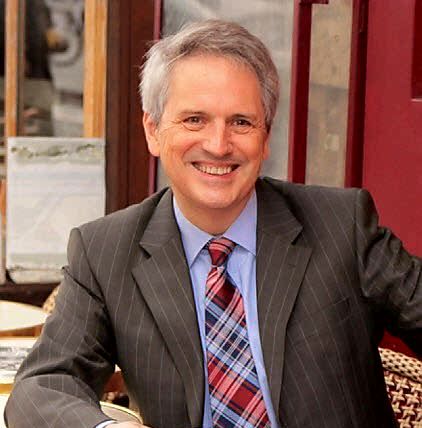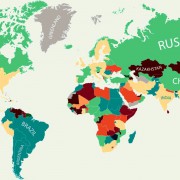Wounded Boys and Men – Masculinity in American Culture
ЧИТАТЬ НА РУССКОМ | LIRE EN FRANCAIS
Translation: Gauthier Nicolle-Chalot
We all ache. We all have wounds. I’ve never met anyone with a storybook childhood or adolescence. The gremlins of pain, loss and alienation spare no one. What may vary, however, is the extent to which individuals can express this pain to one another or even admit it to themselves. As a personal development coach, I have come to notice that men have a much more difficult time talking about their feelings than women. The truth is, in American society, most men may never have had many chances to practice.
Some insight may be gained from information gathered by interculturalists. Forty years ago, Geerte Hofstede, pioneer researcher and sociologist, measured the level of masculinity in different countries around the world. The US came in with a score of 67 (out of 100) which is high but not as high as, say Japan (95). One important difference is that Japanese society is buffered by what Hofstede calls “a mild collectivism” which discourages open competition. What makes the US unique sociologically, is its extremely high score of individualism (91) which when combined with a high level of masculinity, creates a fiercely competitive “winner take all” mentality. While this performance-driven culture benefited the economy of a growing nation, it did come at a social cost, namely the isolation and wounding of too many boys and men.
Traditionally, most young men in the US have few real role models or even places where they can go to be vulnerable with others. I grew up in the 1970s and back then “sensitive” boys invariably got teased or bullied. Growing up in a culture which fostered cowboys and comic book archetypes (strong, silent and self-reliant) made one reluctant if not fearful of sharing one’s feelings. For teenagers there was always an ongoing pressure to conform to a certain idea of masculinity along with unspoken behavioral expectations, such as “Don’t feel!”, “Don’t cry!” and above all, “Don’t trust other men”. Those who didn’t want to play the game and try to “fit in” were either ostracized or isolated themselves. Several decades later, I have to wonder if the situation has really improved.
Farrell is not the only expert who has been pulling the fire alarm on this growing social malaise. The past few years have seen dozens of psychologists make the rounds on the talk show circuit. They all advocate the vital need for men to find a form of emotional release and share their pain with others. Of course, the first and most important companion or “pal” for a young boy would be his father, yet too many Dads are absent or simply don’t feel comfortable opening up to their sons. This is probably because they only play out the roles that they learned (unconsciously) from their fathers.
But perhaps a more appropriate metaphor for violence would be to compare it to a weed in a garden: its roots are deep and not so easily unearthed. In a winner-take-all culture, it is the champions who maintain this power and display it unabashedly. James Hollis, the renowned Jungian analyst, probably comes closest to grasping the root of the problem. In his work, “Under Saturn’s Shadow: the Wounding and Healing of Men”, he identifies the power complex as “the central force in men’s lives…which drives them and wounds them…and each other.”
Another more recent sign of a gradual shift in attitudes can be seen by the unexpected success of the low budget, independent foreign film, “Call Me By Your Name”. While it could never rival a comic book fantasy film at the US box office, its success was groundbreaking for two reasons: firstly, it featured a gay teenager who doesn’t shoot himself (or get shot) in the end and secondly, it portrays an understanding father who upon discovering his son’s penchant for other men, sits down and has a heart to heart talk with him – no anger, no shame, no judgment. It would be hard to overestimate the emotional impact that this last scene had on all American men, regardless of their sexual orientation. If suburban Dads in Colorado can look beyond Elio’s homosexuality and relate instead to the adolescent boy’s pain at the loss of a first and hopeless love, then perhaps we, as a country, are beginning to turn a page.
It won’t be an easy page to turn and it may take several generations. Archetypes cannot be so easily modified in the collective programming of the American mind. Nevertheless, efforts made to educate young people and create a more nuanced definition of what it means to be a man will relieve them of the pressure to conform to an impossible ideal. Granted, not all guys who “win” are bullies and some boys simply may not want to or feel the need to open up… but there should be opportunities for those who do. Furthermore, both women and men need to speak up for the values of compassion and inclusion without fear of being labelled “soft” or “weak”.
As an American I am, by nature, an optimist. I know that we can do this. Showing empathy for the pain of groups which we would not normally or immediately identify with is also part of the American tradition. It all begins with reaching out to the excluded and initiating dialogue: teacher to student, neighbor to neighbor, mother to daughter, father to son. No texts, no tweets but real conversations where we listen with our heads and our hearts. It won’t feel comfortable at first but we simply have to. As I said, we all ache.
Si vous avez trouvé une faute d’orthographe, faites le nous savoir en sélectionnant ce texte et en appuyant sur Ctrl+Entrée.











 Teun Hocks
Teun Hocks
Leave a Reply
Want to join the discussion?Feel free to contribute!